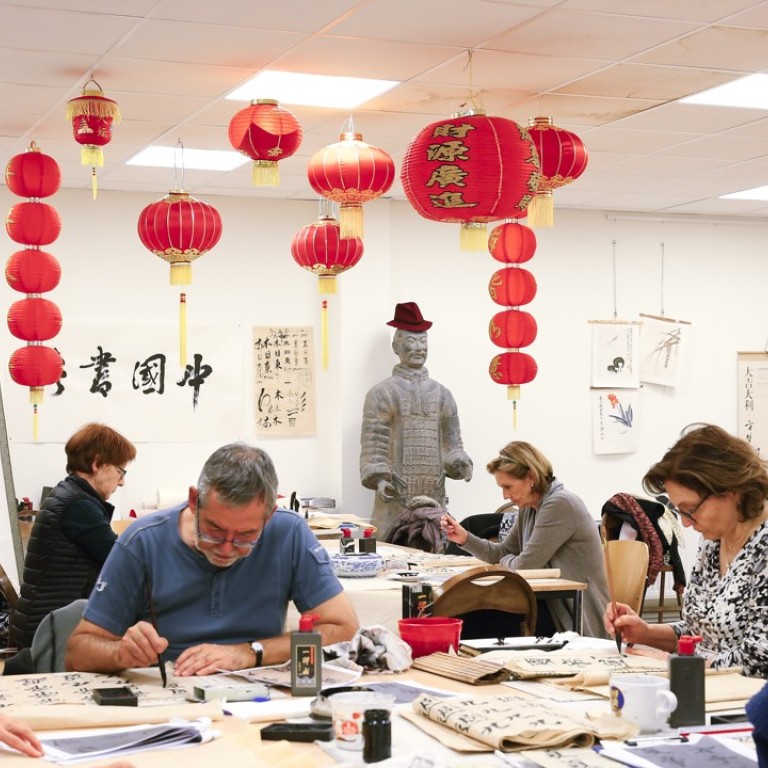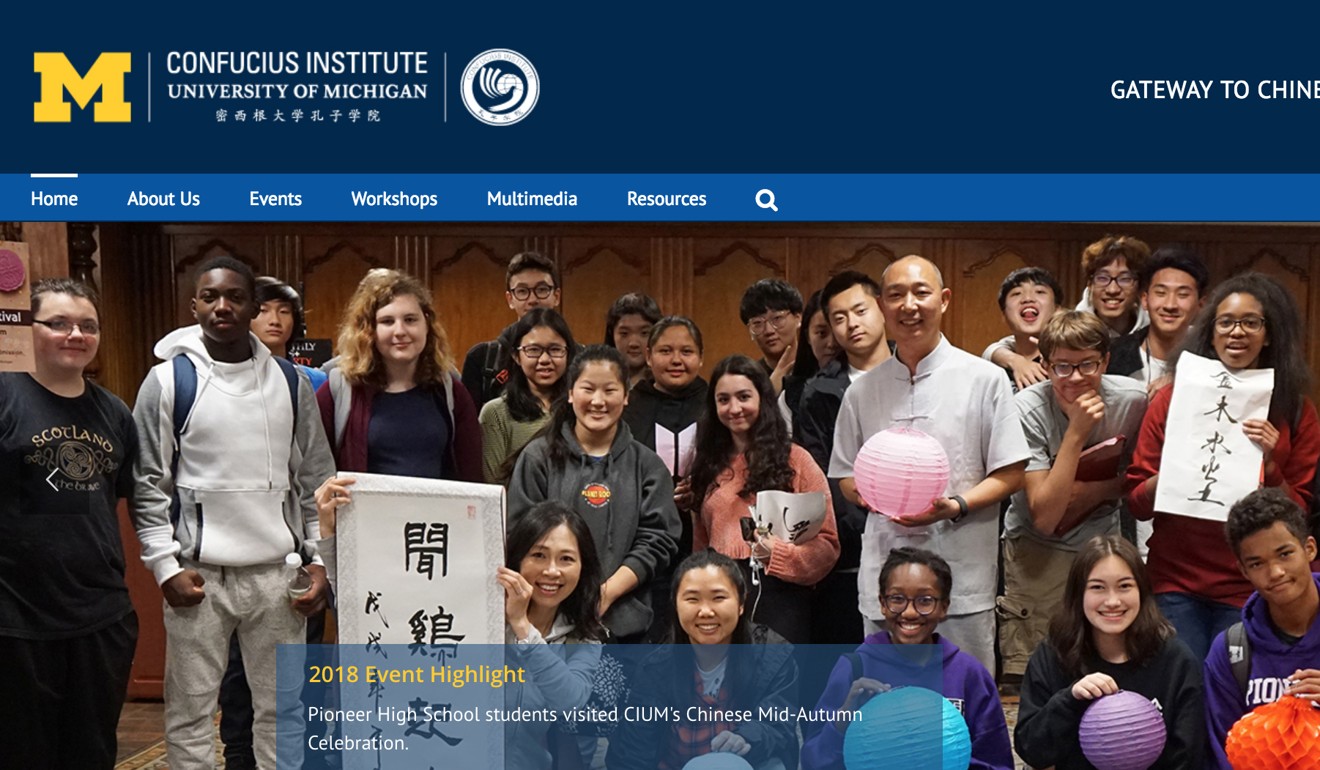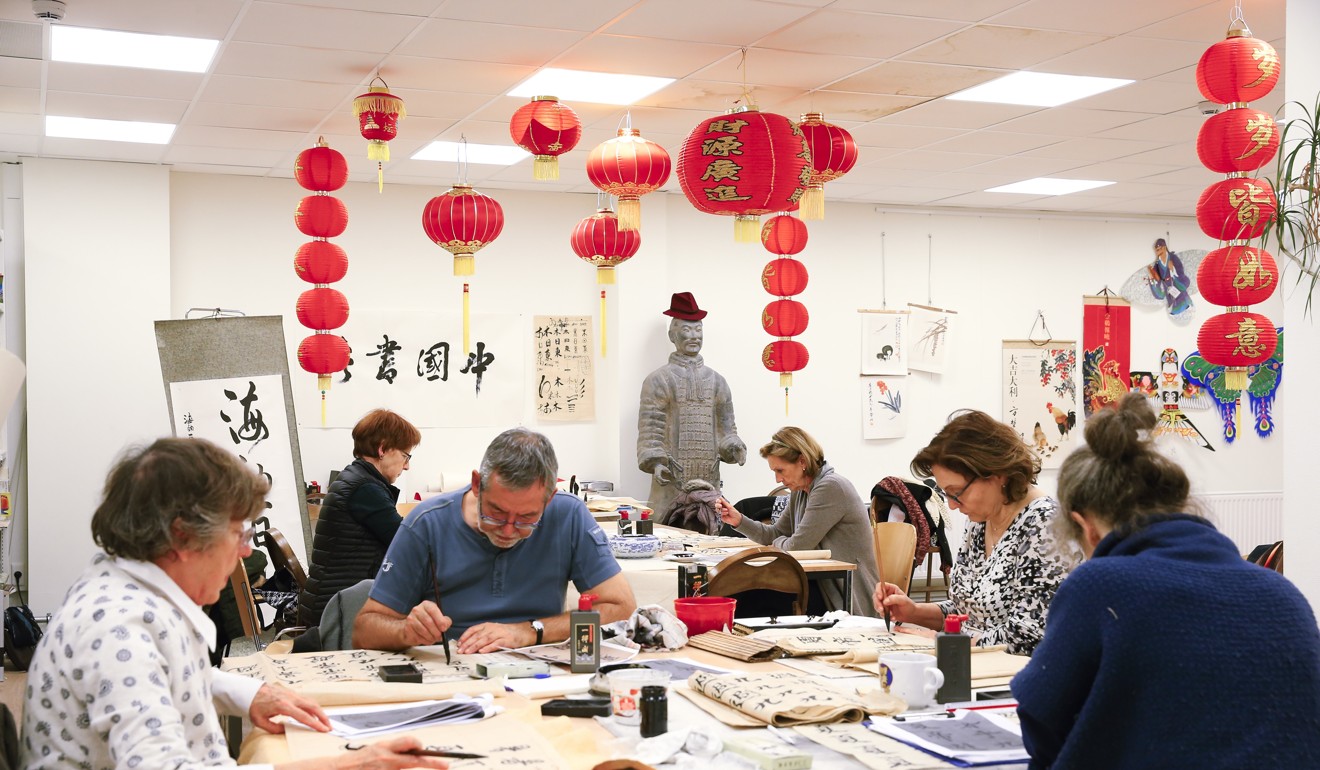
University of Michigan says it will cut ties with China’s Confucius Institute
- The American university says it wants to expand its own Chinese programmes
The University of Michigan said on Monday that it would end its contract with China’s controversial Confucius Institute next year.
It said that it had decided not to renew the agreement for a third term when the partnership expires in 2019 and that Hanban, the Confucius Institute’s Chinese headquarters, had been informed.
The Confucius Institute opened on the campus in Ann Arbor in 2009 – one of more than 500 that have sprung up worldwide since 2004 with a stated aim of promoting Chinese language and culture.
How China is leveraging Confucianism to boost cultural tourism
But the institutes, which are funded by Beijing and have links to the Ministry of Education, have come under increasing international scrutiny, accused of promoting China’s world view and trying to spread its political influence and Communist Party propaganda abroad.
These worries have prompted other universities in the United States – including the University of Chicago and Pennsylvania State University – to cut ties with the institute.

Concerns have been raised over its source of funding, teachers and the educational materials used, with the institute criticised for restricting academic freedom and delivering a selective, politicised view of China as a means to advance the country’s soft power.
Most Confucius Institute instructors are sent from mainland China on two-year assignments, their salaries paid by the Chinese government. The programme’s top leadership is dominated by Chinese government officials, including representatives from the propaganda department.
Spy risk or cultural asset? The divide over China’s Confucius Institutes on US campuses
In the US, there has been criticism from lawmakers including Senator Marco Rubio, who says the Confucius Institute’s goal is to exploit America’s academic freedom and instil a pro-China viewpoint.
The academic community has also voiced concerns. In 2014, the American Association of University Professors issued a statement urging colleges in the United States to end their agreements with the institute.
And as tensions mount between the two countries over trade and security, the institutes are likely to find themselves under more scrutiny.

But the University of Michigan said the decision was made because it wanted to expand its own China programmes.
“This transition is driven by a desire to more broadly include the work of exploring and studying Chinese visual and performing arts within University of Michigan’s regular academic and cultural units,” said James Holloway, vice-provost for global engagement and interdisciplinary academic affairs.
“Today, University of Michigan has a large and growing portfolio of partnerships with China in research and education, ranging from engineering to science, medicine to management, and health to humanities,” he said.
US politicians linking Confucius Institutes with espionage is taking paranoia to the extreme
There were 525 Confucius Institutes established in 138 countries and regions at the end of last year. Hanban opened the first one in Seoul, South Korea, in 2004 and aims to have 1,000 in operation by 2020.

